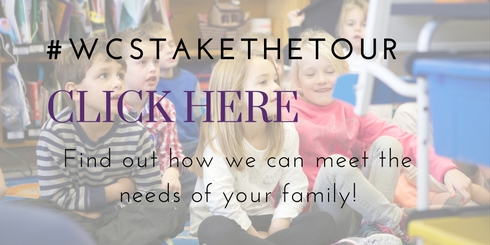Responsive Classroom
Monday, October 16, 2017
The Ontario Alliance of Christian Schools (of which WCS is a member school) is promoting Responsive Classroom training for educators. The OACS is praying for and working toward flourishing Christian schools across Ontario. We, at WCS, were introduced as a staff to this framework at our regional PD day last April. As a result of that introduction, this past summer our staff reading book choices explored components of The Responsive Classroom Framework. This approach blends beautifully with our understanding of Christian community and with restorative practices. You may be wondering, "What is this 'Responsive Classroom' all about?" Let me provide some background. Future editorials will expand on the key principles below. Stay tuned!
The Responsive Classroom approach came about in the early 1980s as a group of public school educators sought to share the knowledge, skills, and philosophies they had acquired through years of teaching. The result of their combined experiences is the Responsive Classroom approach, which emphasizes the social, emotional, and academic growth of elementary school students in a strong and safe learning environment. The Responsive Classroom approach incorporates the students' social and emotional growth into their academic learning, stemming from the notion that children learn best through social interaction and when they are explicitly taught social and emotional skills along with their academic lessons. The seven key principles of the Responsive Classroom approach, as outlined by the Northeast Foundation for Children, are:
* The social curriculum is as important as the academic curriculum.
* How children learn is as important as what they learn: process and content go hand in hand.
* The greatest cognitive growth occurs through social interaction.
* Children need certain social skills in order to be successful academically and socially. These include: cooperation, assertion, responsibility, empathy, and self-control.
* Knowing the children we teach -- individually, culturally, and developmentally -- is as important as knowing the content we teach.
* Knowing the families of the children we teach, and inviting their participation, is essential to children's education.
* How the adults at school work together is as important as individual competence: lasting change begins with the adult community. (Source: https://www.responsiveclassroom.org/about/principles-practices/)
C. Verbeek
Comments
Login to post comments.




